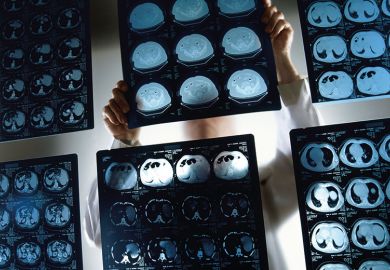Trainee doctors could do much to develop their essential empathic skills by taking a module on Shakespeare.
That is the argument of an article by David Jeffrey, who has a position in the University of Edinburgh’s department of palliative medicine, published in the Journal of the Royal Society of Medicine on 2 April .
“Doctors sometimes distance themselves from patients,” he writes, “avoiding emotions by focusing on biomedical facts” – an approach described as “detached concern”. The “personal protection, social distancing and video consultations” that have been essential during the pandemic have only made empathic contact even more difficult.
Shakespeare himself, Dr Jeffrey’s article goes on, “was familiar with the plague, spending time in ‘lockdown’, when the theatres were closed”. He was born before the emergence of today’s strongly biomedical mindset, which is “thought to be one factor in distancing doctors from patients”. Instead, his plays adopt an “other-orientated perspective, imagining undergoing the other’s experience. ‘I have suffer’d with those that I saw suffer’,” as Miranda puts it in The Tempest.
It is precisely such an “other-orientated perspective [that] prevents the doctor from losing sight of the patient as another person”, the article points out. Equally crucial in medical practice is the “‘narrative competency’ allow[ing doctors] to interact with the patient in a joint process of making sense of their stories of suffering”.
The medical humanities have now established themselves as a legitimate discipline. Drama, and even painting and music, are sometimes introduced on the margins of medical degrees. Yet Dr Jeffrey’s paper suggests that a “special study module” on Shakespeare would be particularly effective in “encourag[ing] students and doctors to engage a psychosocial perspective when thinking about the patient’s story”. It would also provide “a supportive environment” for them to “rehearse their natural spontaneous empathy, developing their imagination, curiosity and self-reflection”.
The impact on doctors-to-be could be crucial in addressing “the current imbalance between biomedical and psycho-social care”.
Register to continue
Why register?
- Registration is free and only takes a moment
- Once registered, you can read 3 articles a month
- Sign up for our newsletter
Subscribe
Or subscribe for unlimited access to:
- Unlimited access to news, views, insights & reviews
- Digital editions
- Digital access to THE’s university and college rankings analysis
Already registered or a current subscriber?








